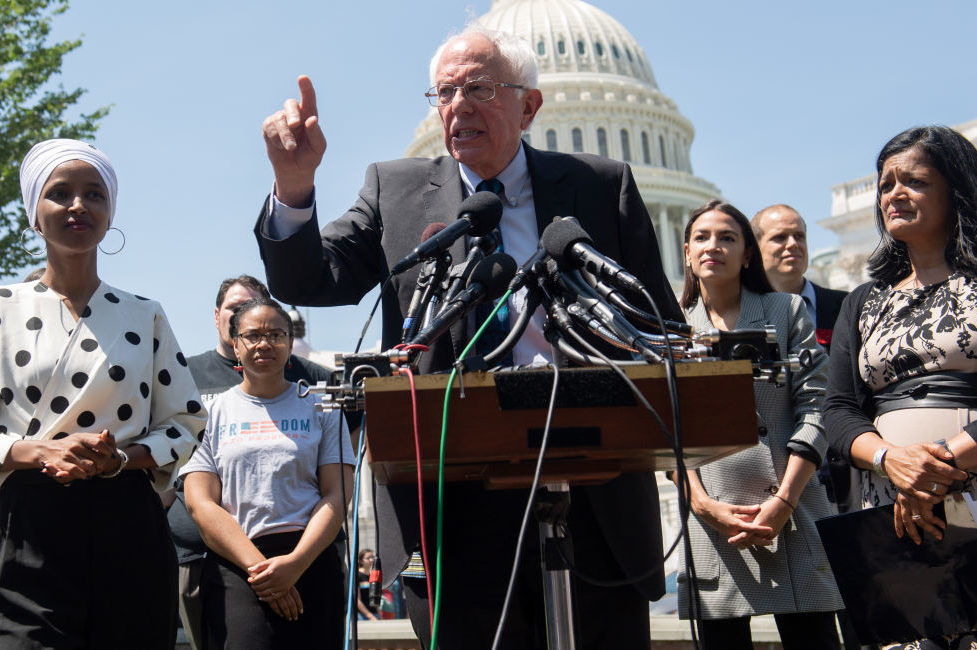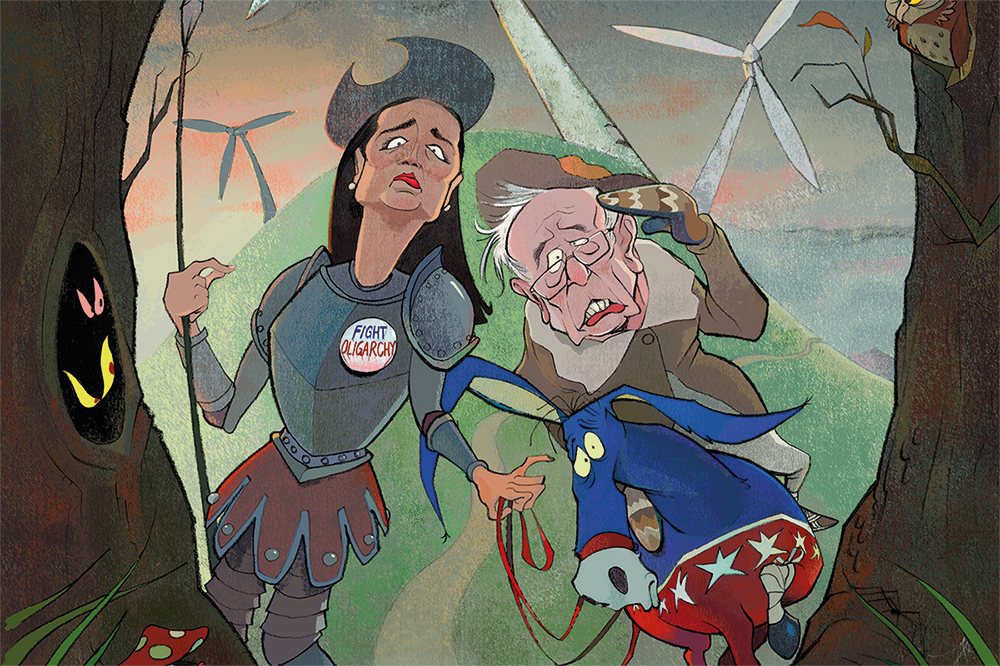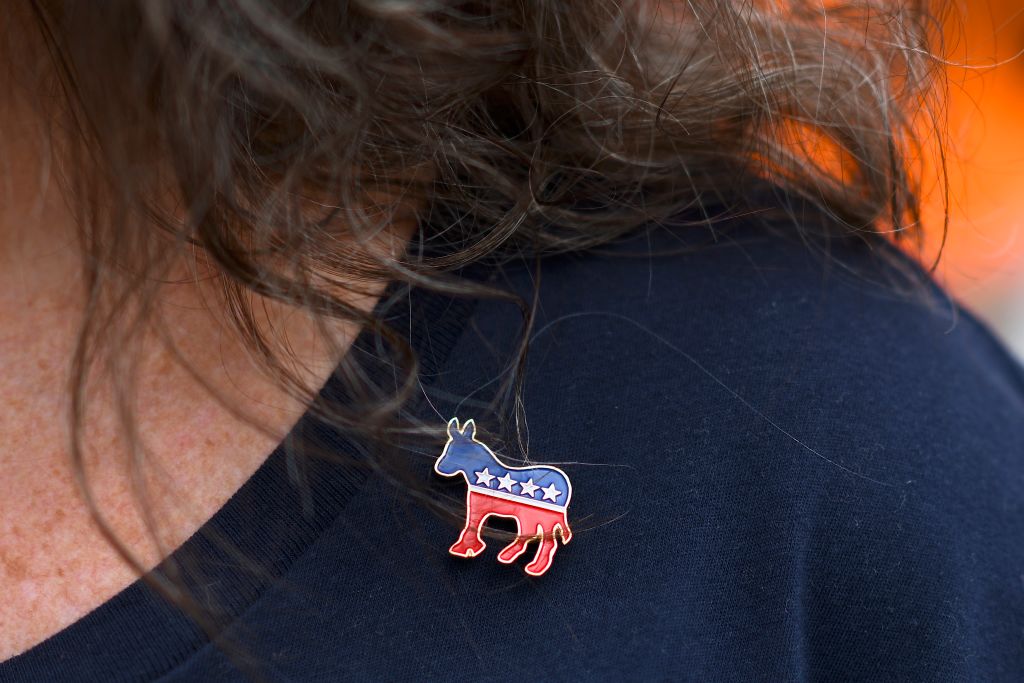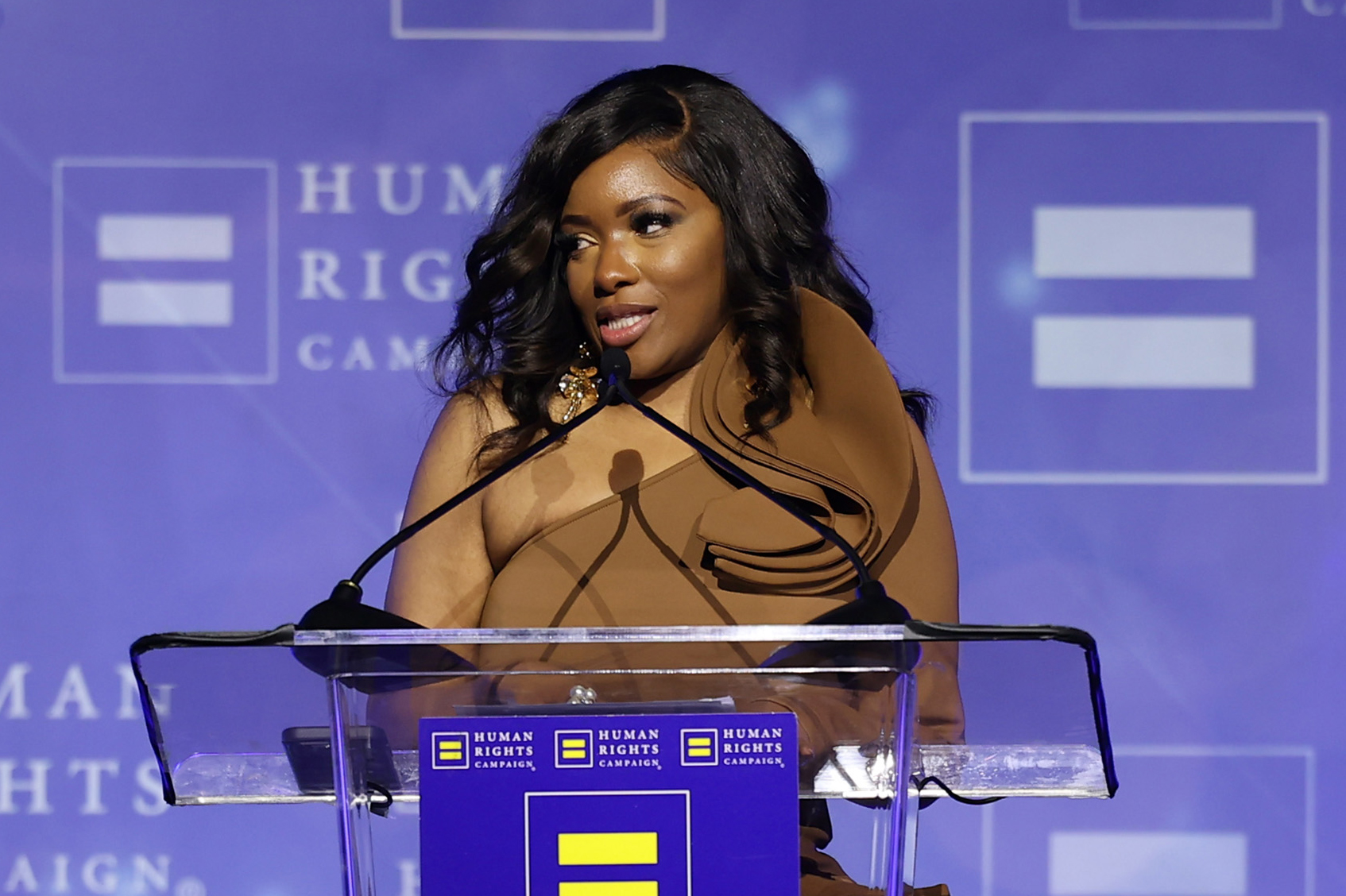This article is in
The Spectator’s inaugural US edition. Subscribe here to get yours.
Dear Democrats, I’m mad at you. I was raised a die-hard, bleeding-heart liberal. My grandmother was an Irish Catholic New Englander who worshipped JFK almost as much as Jesus. My dad and his nine siblings sang for the Kennedys at Hammersmith Farm.
For decades, I was a loyal regular at your bar until suddenly you started ignoring me. You took my support for granted and dismissed my concerns, focusing instead on courting the young city hipsters with their scooters and their designer weed and their craft beers. You began overlooking pragmatic moderates and catering to loud extremists who favor rewriting the Constitution and accelerating our lurch towards socialism.
So in 2016, feeling politically homeless, I dropped my party affiliation. How did this happen? How did I go from being a lifetime Democrat to a registered independent? I am far from alone: why don’t you Democrats seem to care?
Like most Americans, I developed my politics through osmosis. You absorb what you grow up around. I call this unexamined position ‘factory settings’. Factory settings are the default beliefs installed when you were a child. ‘I grew up in a conservative home and so I vote Republican.’ Or ‘I hate the Yankees because I’m from Boston.’
As a young person, I could spout Democratic party lines verbatim. I didn’t care all that much. Prior to 2015, I viewed politics as something that only affected the very rich and the very poor. I wasn’t dependent on the government and tax cuts didn’t benefit me. The winner of any election had very little influence on my life. I worked as a waitress. Too busy living paycheck to paycheck, I felt like just another cog in the wheel.
For most of the 20 years in which I have been able to vote, I’ve kept my head down and voted Democrat because I believed they were the ‘party of the people’. And I was told Republicans were evil my whole life.
I understood the importance of voting, but had fallen asleep at the wheel of a self-driving car and was happy to let the autopilot navigate. It was easier. And not in a lazy, ignorant or unmotivated way — I was simply too busy trying to survive, so I rested in the default settings I was born into and trusted the geniuses in charge could work on the details.
For a long time, politicians could count on the factory-settings crowd. People know the lever they’re supposed to pull and that’s about all they’re there to do. But social media and unprecedented amounts of interconnection have added new layers that disrupt the quiet majority of factory-settings voters like me.
Having been born and raised a liberal Democrat, I had only a vague sense of the truth behind America’s political divisions. This was because of the left’s firm domination of media, entertainment and education. I subscribed to what I now call ‘The Approved Message’, a sort of ‘right-think’ that meant you were one of the good guys: a Democrat. It made for a simpler life.
Then came Trumpism. The Approved Message grew louder and angrier. It coalesced into a progressive religion, ‘Wokeism’, which adopted increasingly complex rules. Suddenly, there was no limit on what someone might deem offensive. Certain opinions, words and ideas became unacceptable overnight. Citizens took to policing one another’s jokes, tone and internet histories.
It quickly became clear that anyone who supported Trump (to be clear, I am not a fan) should be shamed and ostracized. If they were a family member, disowned. In fact, coming out as anything other than anti-Trump could end your career, get you kicked out of your mommy group or land you on the wrong side of a virtual mob.
Like most Americans, I was suddenly playing catch-up. Speech is violence, capitalism and democracy are oppressive, critical thinking is ‘fence-sitting’.
If you try nuance or engage in ‘wrong-think’ on sacred issues, you won’t just get into a tiff with the neighbors; now there’s every chance you will have your personal life dragged into the public square in order to shame you into obscurity. The days of buffet-style politics are no longer allowed. You either check all the boxes of the ‘good’ party, or you belong to the ‘bad’ one. When I dared to push back by writing articles, I was struck by how quickly the left rejected me. Millions noticed this too: they watched in stunned silence as leftists demanded books be censored, scrutinized language and called anyone who disagreed a Nazi.
Flash forward three years into a Trump administration and instead of learning from mistakes, the loudest members of the party are heading for the same brick wall. At this point the 2020 Democratic platform feels like a barely veiled threat: ‘Vote for us or you’re racist.’
The progressive push to fully embody the promise made in the Declaration of Independence that ‘all men are created equal’ used to feel aspirational and attainable. Now, the open-mindedness and tolerance that attracted me to the Democratic party seems like a thing of the past. Gone is the party that stood in direct opposition to the rigid moralizing of conservatism.
In its place is a movement that feels less about liberation and more about obedience. Progressivism is no longer interested in ideological diversity and instead demands rigid adherence to dogma. Dare to defy and risk being, as we say on Twitter, ‘canceled’.
When a movement is no longer open to dissent, the movement is dead. It is no longer a living, breathing dialogue. It’s a cult.
Like it or not, I’m a canary in the coal-mine. If I, a citizen of the Republic of California, have been abandoned in the center, how many people are there in Ohio? Or Florida? Or Wisconsin? I guarantee a lot more than the polls currently reflect, and a lot more than Democrats can perceive from their liberal bubble. You can’t bully people into voting the way you like and then when they push back imply they are racist and say good riddance — not if you want to survive.
So Democrats, please stop with this nonsense that people like me have left you, as you endlessly tell me on Twitter. You pushed us away. Offer us a compelling vision of the future based on the strength of your ideas and policies. If you can’t, maybe you don’t deserve to win.
This article is in The Spectator’s inaugural US edition. Subscribe here to get yours.



























